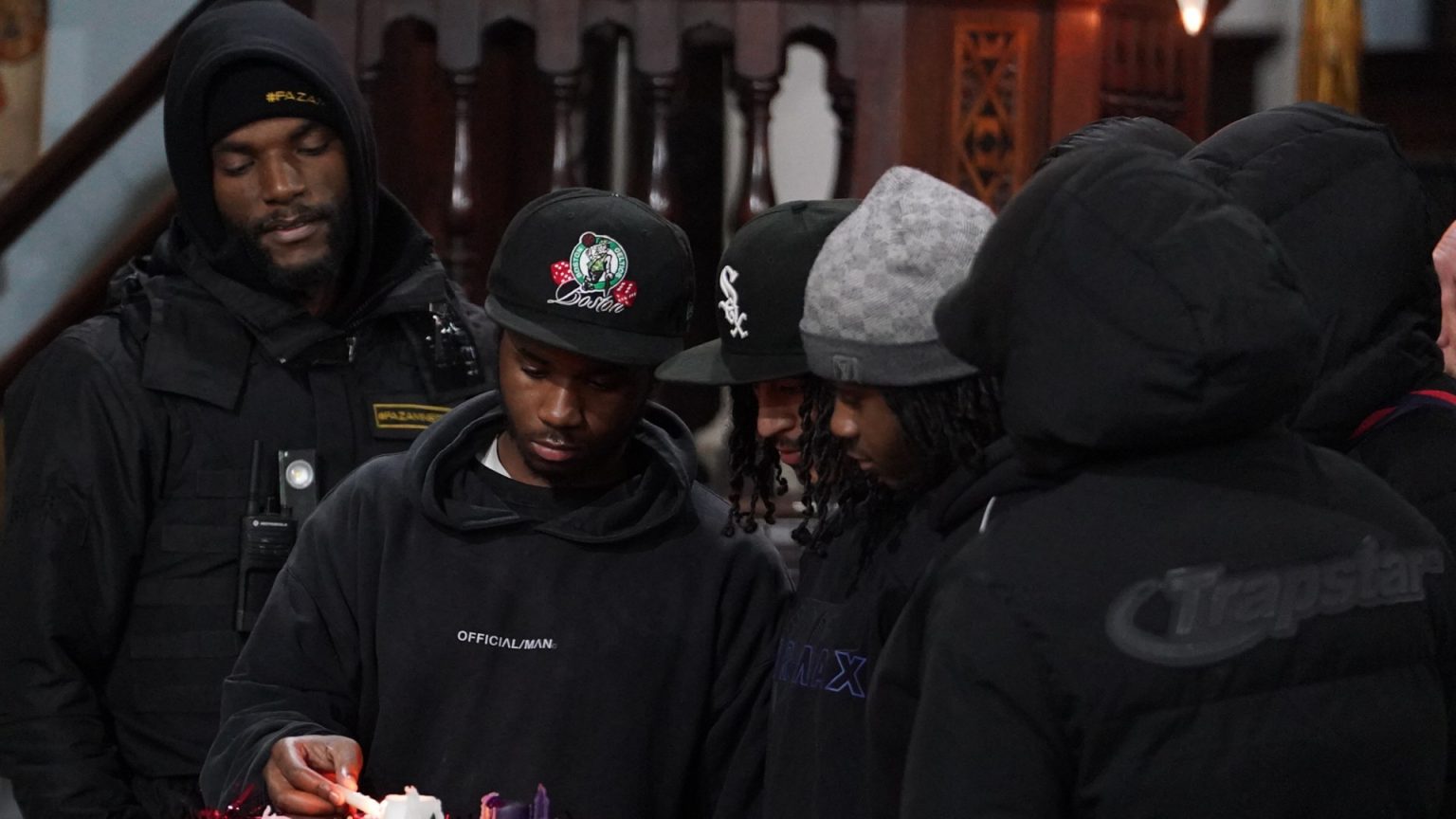Kelyan Bokassa, a 14-year-old boy brimming with life and potential, was tragically stabbed to death on a London bus in a senseless act of violence that has left his family, friends, and community devastated. The attack occurred in broad daylight on a Route 472 bus in Woolwich, a stark reminder of the knife crime epidemic plaguing the city. Kelyan, a devoted Arsenal fan and aspiring musician, was on his way to meet his social worker on what should have been his first day back at school. Instead, his young life was abruptly cut short, leaving a void in the lives of those who knew and loved him.
In the wake of the tragedy, friends and family gathered at St Mary Magdalene church in Woolwich for a poignant vigil. Candles flickered, illuminating the faces of mourners as they shared stories of Kelyan’s infectious laughter, kind heart, and unwavering loyalty. One friend, struggling to comprehend the loss, described Kelyan as a “pure-hearted and fun” individual who was “always there for you.” Another recalled his energy and enthusiasm, lamenting that such a promising life could be extinguished so prematurely. The outpouring of grief at the vigil underscored the profound impact Kelyan had on those around him. His absence leaves a gaping hole in their lives, a constant reminder of the potential that was tragically stolen.
Kelyan’s mother, Mary Bokassa, bravely shared her heartbreaking story, revealing the difficult circumstances that preceded her son’s death. He had spent a year living on the streets, vulnerable and exposed to the dangers of gang influence and drug exploitation. Despite the challenges he faced, Kelyan retained his caring nature and sense of humor, finding solace in football and music. His mother’s words paint a picture of a young boy struggling to navigate a complex and often unforgiving world, a boy who desperately needed support and guidance. Her account highlights the systemic failures that allowed Kelyan to fall through the cracks, ultimately contributing to his tragic demise.
The investigation into Kelyan’s murder is ongoing, with police conducting an urgent manhunt for the perpetrator. The lack of arrests thus far has only intensified the community’s grief and frustration. The senselessness of the crime has sparked outrage and renewed calls for action to address the underlying issues that contribute to youth violence. Kelyan’s death is not just a tragedy for his family; it is a tragedy for London, a stark reminder of the urgent need for effective strategies to combat knife crime and protect vulnerable young people.
The online tributes pouring in for Kelyan under the hashtag #LongLiveKelyan (LLK) serve as a testament to the impact he had on his peers. Friends and acquaintances share memories, express their disbelief, and mourn the loss of a young life cut short too soon. These digital expressions of grief highlight the collective sense of loss felt by the community, reflecting the profound impact Kelyan had on those who knew him. The outpouring of support online also underscores the power of social media in connecting individuals during times of tragedy, providing a platform for shared grief and remembrance.
Kelyan’s story is a stark reminder of the devastating consequences of knife crime. He was a young boy with dreams and aspirations, a loving son, and a loyal friend. His life was tragically cut short, leaving a void in the hearts of those who knew and loved him. As the community mourns his loss, the search for justice continues, and the urgent need to address the root causes of youth violence remains paramount. Kelyan’s story serves as a call to action, a plea for a safer future for all young people. His memory will live on in the hearts of those who loved him, and his tragic death should serve as a catalyst for change.




